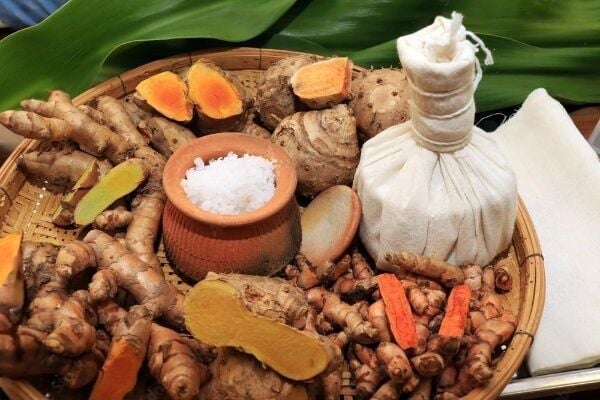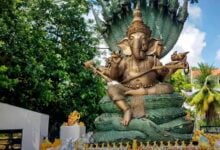The holistic approach of Thai medicine and western medicine

Traditional Thai Medicine (TTM) has evolved over the centuries into a holistic health system that encompasses five diverse approaches: Internal Medicine, External Medicine, Spirit Medicine, Divination, and Buddhism.
This natural and comprehensive approach to healthcare mirrors the development of Western medicine.
Internal Medicine in TTM involves the use of herbs and diet, a practice that predates Western medicine’s shift to a scientific foundation. Even today, these treatments are prevalent among naturopaths and alternative therapists.
External Medicine includes manipulation, cupping, massage, and the external application of herbs. This form of therapy, once popular in the West, is now mainly practised by physiotherapists and chiropractors.
Spirit Medicine involves the use of amulets and Sak Yan tattooing, which are believed to offer spiritual protection and aid in healing. Similar to amulets used in the West, these items are meant to ward off evil spirits. The Sak Yan tattoos, often seen on bar girls in Thailand, are personalised designs based on the subject’s date and time of birth and are believed to bring good fortune and health.
Divination, the practice of seeking knowledge of the future or the unknown through supernatural means, finds its parallel in the West in the form of meditation.
Lastly, Buddhism is considered the mental health branch of TTM. It espouses a philosophy that a healthy existence relies on maintaining perfect balance and harmony among the four elements of life: Earth, Water, Wind and Fire. Illness is believed to occur when this balance is disrupted. This philosophy, however, does not find support in Western science, which prioritises empirical evidence over theory and logic.
Western medicine
Western medicine first made its appearance in Siam, present-day Thailand, in 1686. The first government-funded Thai hospital, Siriraj Hospital, was built in 1887, followed by the King (Rama V) Chulalongkorn Memorial Hospital in 1914. Chulalongkorn University, along with its Faculty of Medicine, was established in 1916. However, TTM was removed from the Thai medical curriculum in 1915.
Despite the growth of Western-style medicine in Thailand, the performance of Thai-trained doctors is considered subpar for two main reasons. Firstly, their medical training is deemed inadequate by Western standards. Thai-trained doctors often lack comprehensive training to take a complete medical history and perform an adequate physical examination, reported Pattaya News.
Secondly, there is a cultural bias rooted in Confucian ideology (Ruism), a significant component of Thai tradition. The concept of face in Confucianism calls for individuals to relinquish their individuality and focus on their societal duties.
Under this philosophy, happiness is not achieved through personal success or material pleasures, as in the West, but through coming to terms with oneself, one’s family, and one’s community. The concept of face is considered anti-intellectual and its implication can have severe repercussions.
Latest Thailand News
Follow The Thaiger on Google News:


























